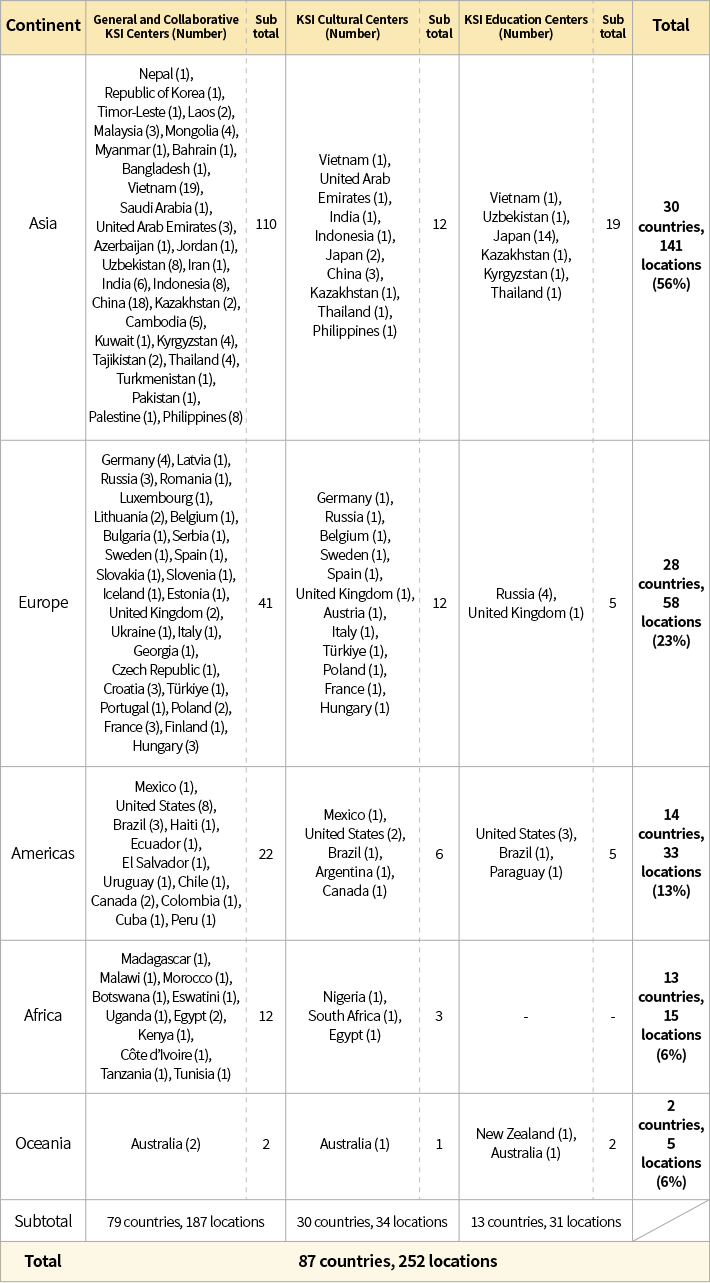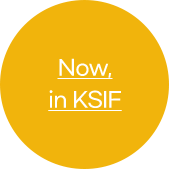
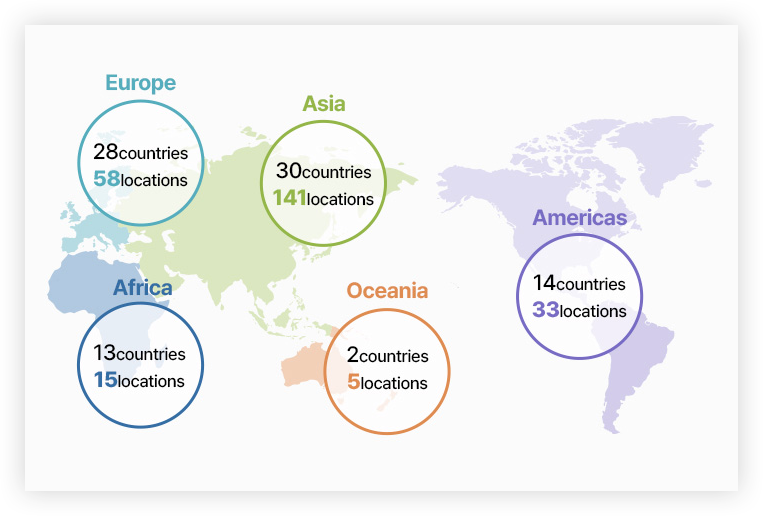
KSIF Designates 11 New KSIs
in 9 Countries for 2025
>
New designations include countries such as Egypt, which has a long waitlist, and Uzbekistan,
where demand for Korean is rapidly increasing
>
KSIF aims to discover and support promising KSIs through regional KSI Centers, with a goal of
operating more than 350 KSIs worldwide by 2030
The King Sejong Institute Foundation (Acting President and Secretary General Choi Hyun-seung, hereafter referred
to as KSIF) announced on June 30 that, in cooperation with the Ministry of Culture, Sports and Tourism (Minister
Yoo In-chon, hereafter referred to as MCST), it has designated 11 new KSIs in 9 countries for 2025. With these
additions, a total of 252 KSIs in 87 countries around the world now offer Korean language and culture education.
In 2024 alone, a total of 210,374 students studied Korean either online or in person at KSIs worldwide. This
marks significant growth from 2007, when the very first KSI opened in Ulaanbaatar, Mongolia, with just 13
institutes in 3 countries and 740 students annually. The expansion has been made possible through the systematic
support for Korean language promotion following the establishment of KSIF in 2012.
Reflecting the global enthusiasm for Korean language learning, this year’s call for new KSI applications drew 94
institutions from 43 countries, resulting in the highest-ever competition rate of 8.5 to 1. The KSI Designation
Review Committee, comprised of experts in Korean language education and international cultural exchange,
conducted a rigorous four-month process including document reviews, on-site evaluations, and final assessments,
ultimately selecting 11 institutes with outstanding operational capacity.
*Competition Rate by Year (Past 5 Years): (’21) 3.3:1 → (’22) 3.6:1 → (’23) 4.3:1 → (’24) 5.4:1 → (’25) 8.5:1
Results of New Designations by Region and Country (*Countries listed in
alphabetical order)
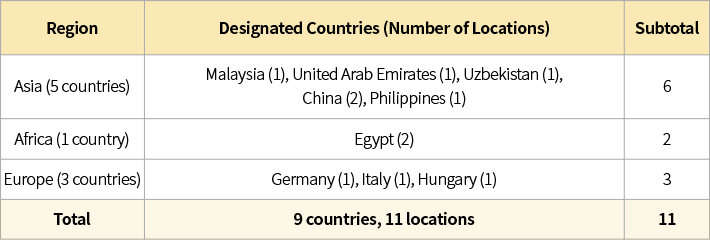
Of particular significance this year is the designation of new KSIs in countries such as Egypt, which has a
large number of students on the waitlist, and Uzbekistan, where demand for Korean language education is rapidly
increasing. Until now, KSI Korean Cultural Center, Egypt had been the only designated KSI in Egypt. However,
with the recent acceleration of Korean companies expanding into the country, the demand for Korean has surged,
and the number of waitlisted students at this single KSI reached 1,285. To meet this rising demand, two new KSIs
have been designated at leading educational institutions in Egypt: Ain Shams University in Cairo and Alexandria
University in Alexandria. In Uzbekistan, although there are already seven KSIs in operation, the number of
test-takers for the Test of Proficiency in Korean (TOPIK) has recently skyrocketed, and the number of Uzbek
students studying at Korean higher education institutions reached 12,025—ranking fourth after China, Vietnam,
and Mongolia. In light of the growing demand for Korean language education for employment and study abroad, an
additional KSI has been designated in the country. In addition, new KSIs have been established in five locations
across Asia—including Malaysia, the Philippines, China, and the United Arab Emirates, where cultural and
educational exchanges with Korea are active—as well as in three European countries—Germany, Italy, and
Hungary—where interest in Hallyu content such as Korean dramas, films, and music continues to grow.
KSIF and the Ministry of Culture, Sports and Tourism (MCST) plan to build upon this year’s new KSI designations
to further promote the global spread of the Korean language and culture, in line with the current
administration’s presidential pledge. The five KSI Centers currently established in key global regions will be
gradually expanded to 20 centers by 2030, enabling the discovery and support of promising new KSIs, the
provision of regional management and operational assistance, and close collaboration with overseas institutions.
Based on this regional ecosystem, KSIF aims to gradually expand the number of KSIs worldwide, with the goal of
operating more than 350 KSIs by 2030.
Results of New Designations by Region and Country
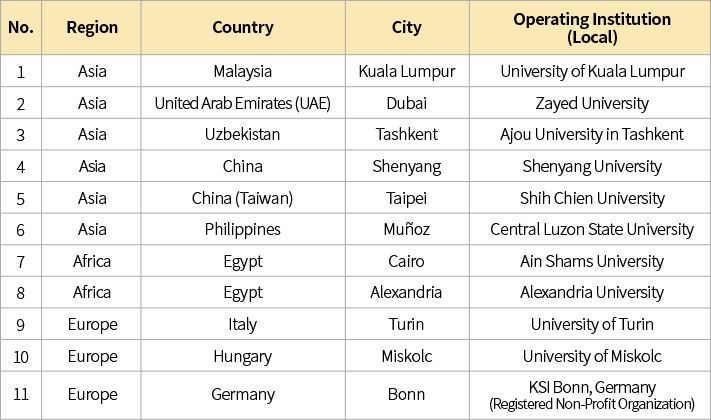
Status of KSIs by Type and Continent
